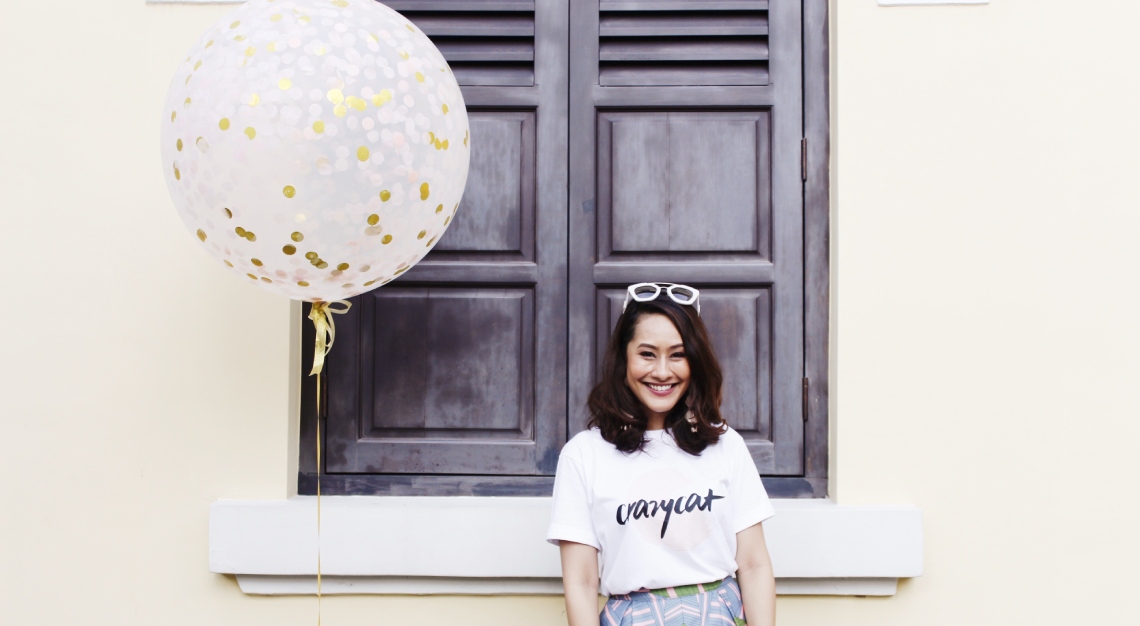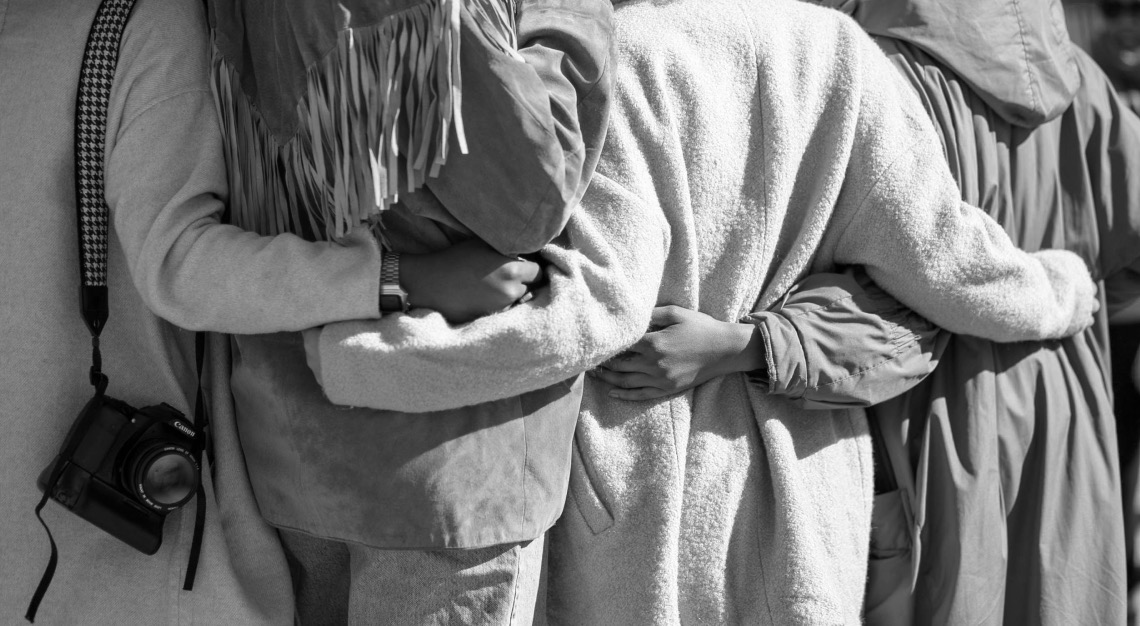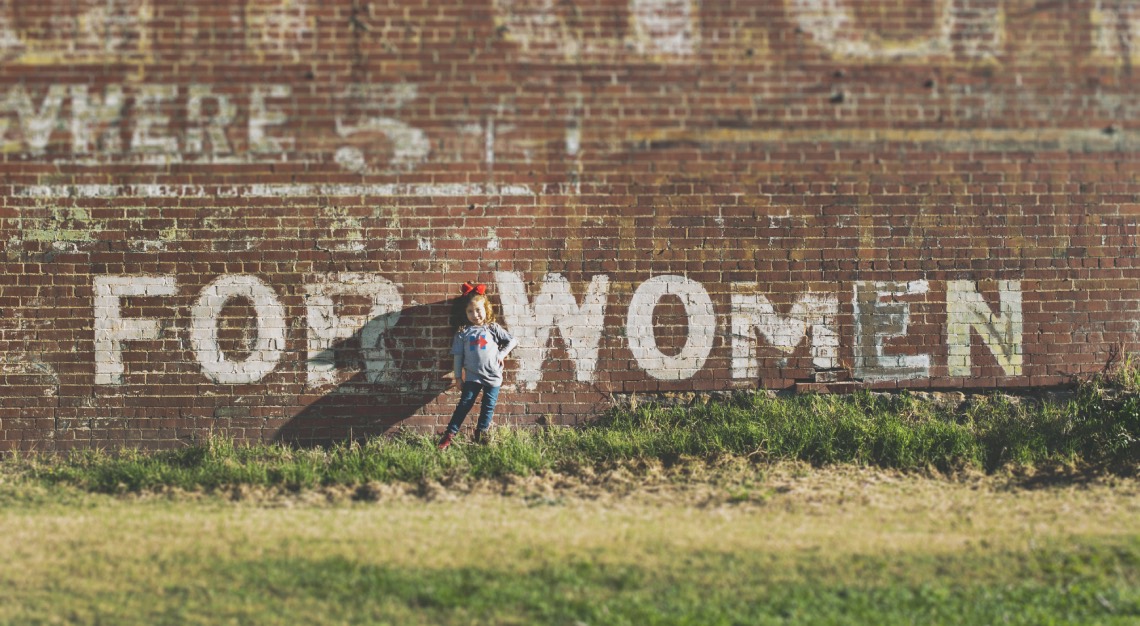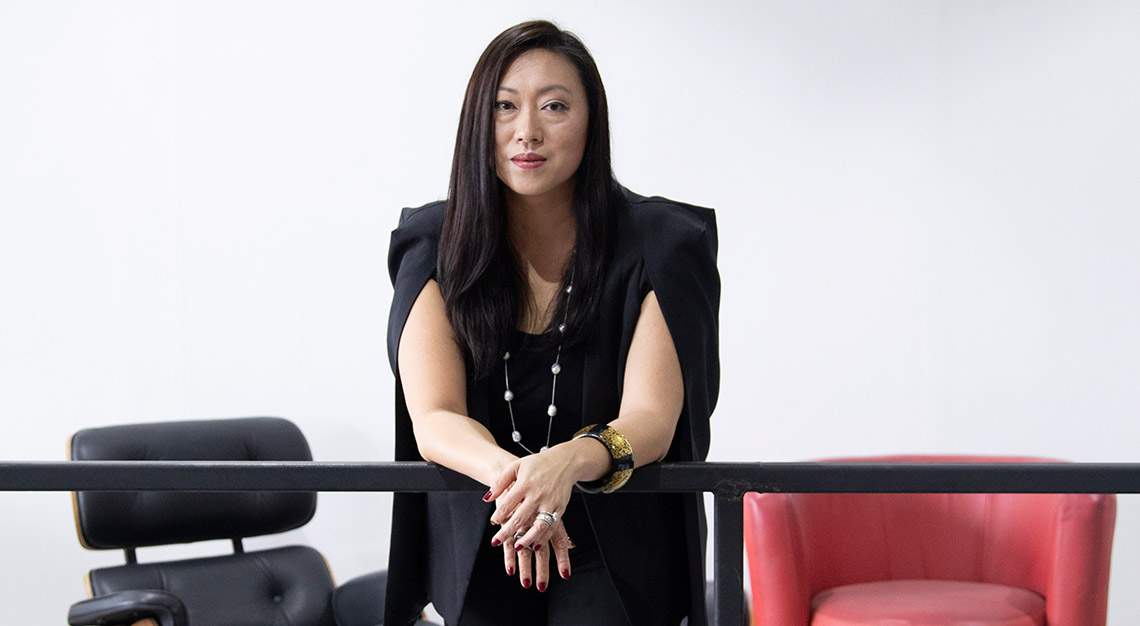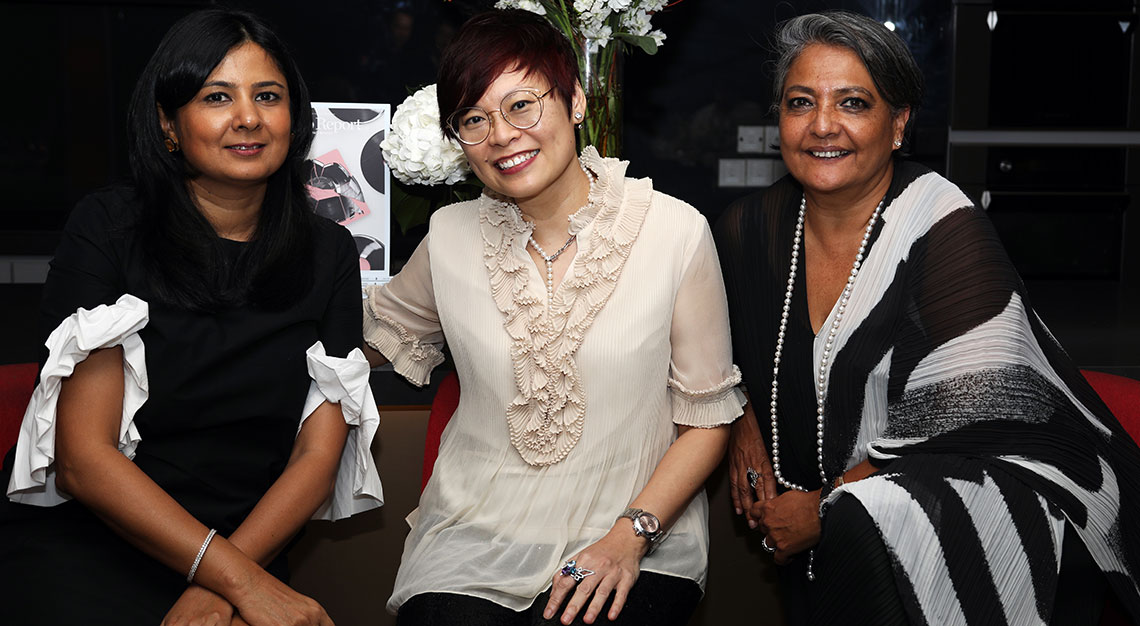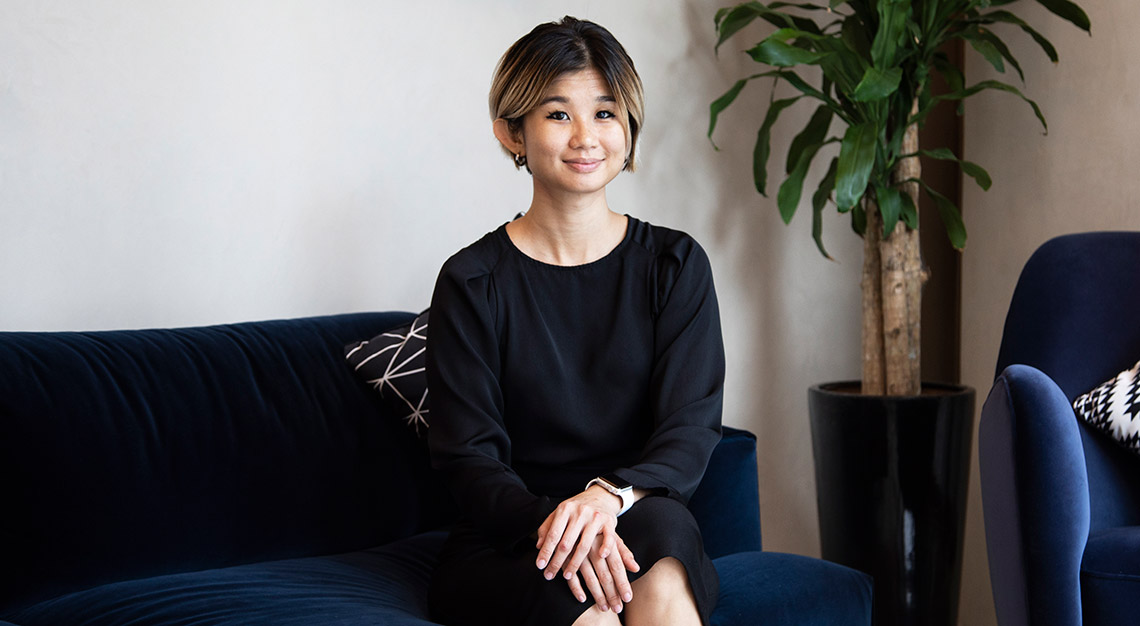The Female Gaze spotlights female bosses empowering their respective industries. This week, we talk to Sarah Bagharib from Crazycat about the importance of community
“A crazycat is a woman with grit and ambition (regardless big or small) who is constantly striving be the best version of herself, and living a life that serves her own purpose.”
With a bright smile on her face, Sarah Bagharib is honest and passionate. Her organisation, Crazycat is an exact reflection of that. One of the newer platforms on the scene, Crazycat is fresh, fun and wonderfully honest.
A scroll through its Instagram and you’ll arrive at the same conclusion. Don’t be deceived by the pretty pastels – Crazycat covers some heavy stuff, such as self-love, community and inclusion. That’s what Crazycat seems to be all about.
The stories and women they feature come from all over: different ages, industries, ethnicities. Different heartbreaks. The beauty in Crazycat is that it builds a community that celebrates difference, as opposed to attempting to package the human experience in a pretty box. Regardless of how different you are, community remains integral: the beauty of the Crazycat community is in the earnest simplicity of its goals.
I chat with Sarah Bagharib on the importance of community, feminism and being a mother.
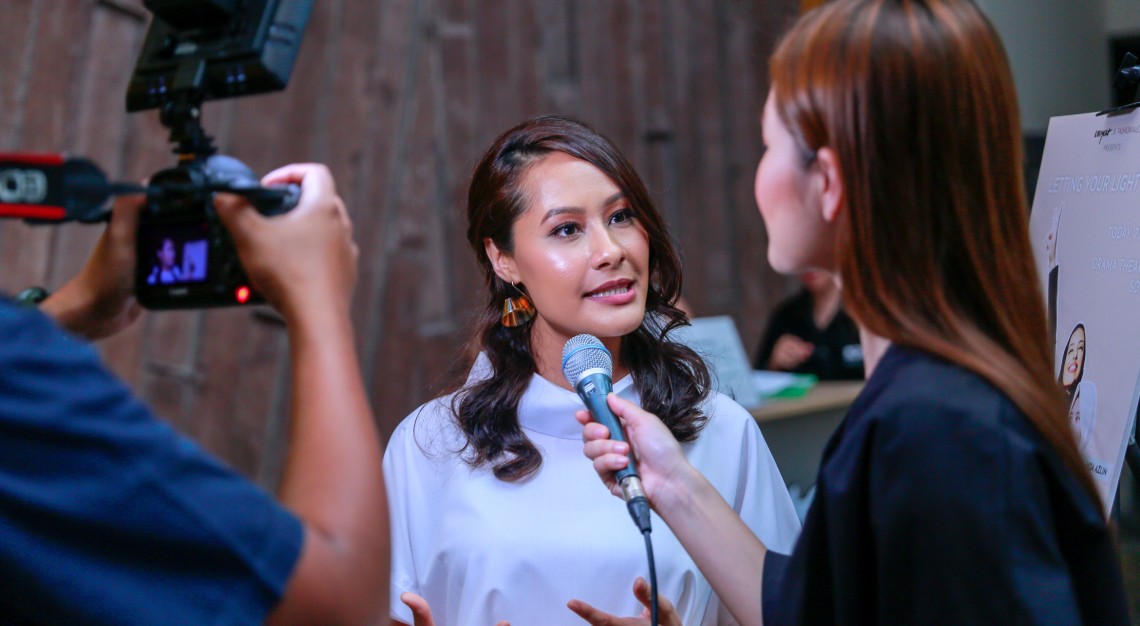
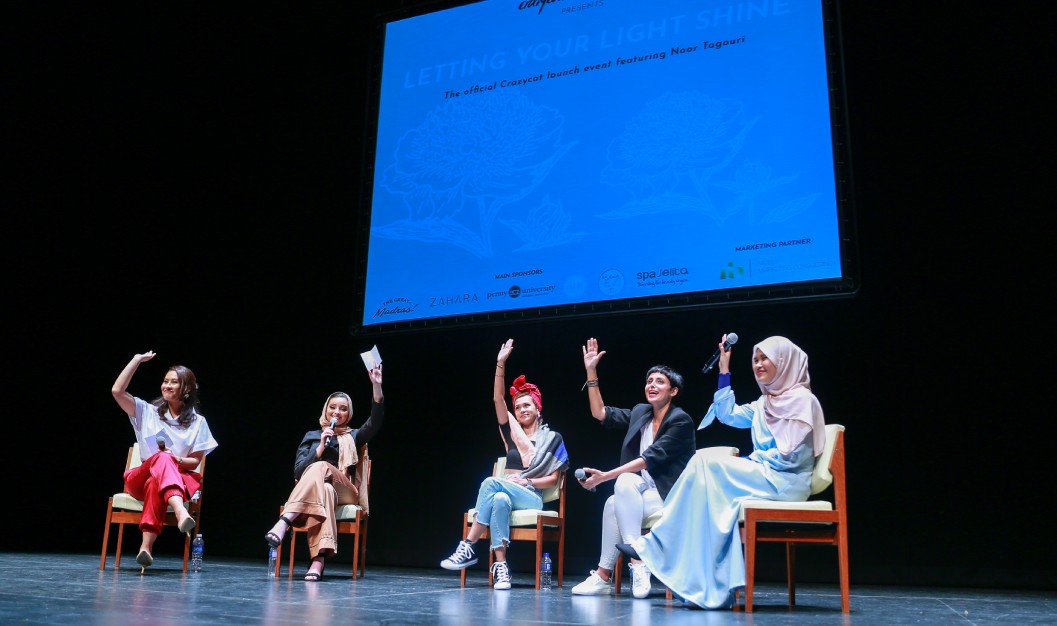
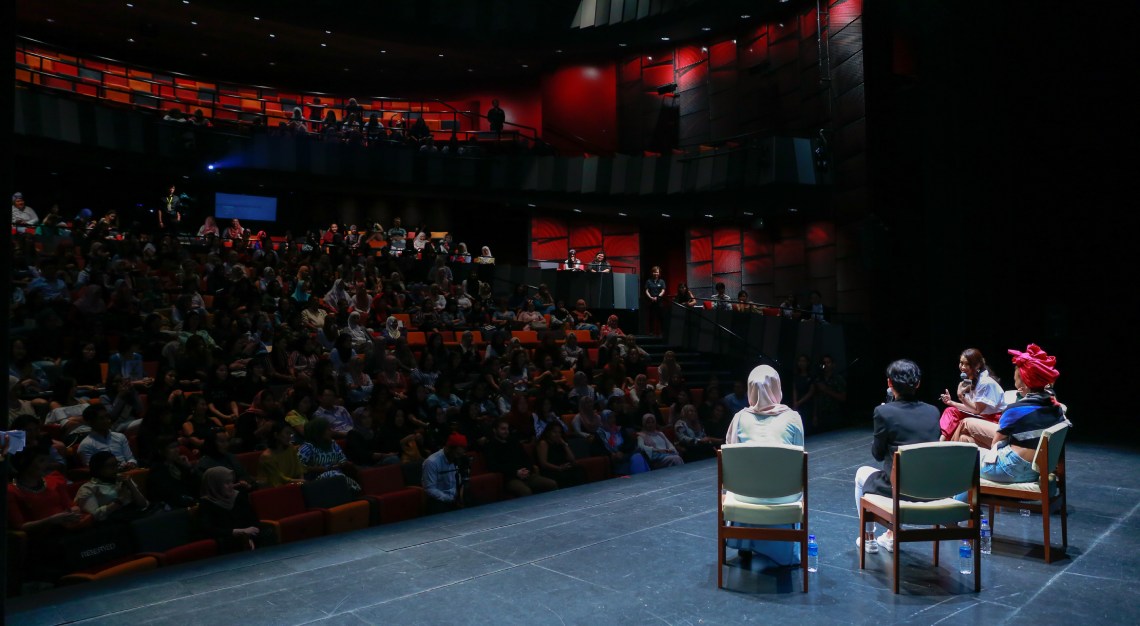
Why Crazycat?
I realised that there are plenty of women networks and organisations around but they mainly cater to more elite women, women in power, and also the more… privileged. What about the everyday women? Women like myself, or the baristas, the stay-at-home mums, the teachers – essentially women who do their best every day and live life serving their own purpose, and are not without struggles.
As an everyday woman, I resonate completely. We all have our bad days.
I struggle with self-doubt and limiting beliefs a lot and I realised that women struggle with these more than men. I really believe that everyone has a story to tell but I think women tend to discredit our unique strengths and the stories we carry. So I was inspired to encourage as many women as possible to share their story – no story is insignificant.
Tell me about a woman whose story inspires you.
My mother. She put her own dreams and ambitions on hold when she was made to stop working to look after me, my younger siblings and the household. On top of that, she was also struggling with something that really impacted her mental health. This was during a time when people didn’t quite have the same access to the mental health support tools and resources that we have now. Now that I’m a mum myself, I can truly understand the struggles and realities of juggling motherhood and well… life.
Congratulations on being a mother. That must have changed your social life a bit.
I honestly cannot remember hanging out with my girlfriends after having my daughter 20 months ago! And of course there’s the pandemic too. But at this point, I think hanging out with my girlfriends involve play dates with our kids.
How do you support your girlfriends and the women around you?
I’d like to think that I do that by first checking in on them every once in a while and by asking them how they are or how they’ve been. This would allow them to pause and self-reflect! And if they haven’t taken time to pause or appreciate the quiet moments then I encourage them to do so, because there’s a lot of value in self-reflection.
Speaking of self-reflection, what do you love most about the feminist movement?
At the core of it, I love that the movement helps remind women of the value we bring to the world.
What’s the one thing you’d change about it?
The lack of recognition of the intersections within the movement – or at least that’s the reality in this part of the world. It’s great to see that there’s increasing recognition and acknowledgement of women from diverse ethnicities and backgrounds in the West. But unfortunately, we still have quite a way to go in Singapore.
I’m a minority, a Muslim and I don’t speak for all women like me, but I’m confident to say that I do for most. We don’t feel there’s enough representation of minority women in the wider women networks and organisations that exist. I think there’s greater importance on diversity and inclusion today in general but I think there’s still room for more conversations as a starting point to acknowledge and understand our reality and lived experiences as minority women within the feminist movement here.
Any final message for the women out there?
I hope that more women can honour themselves by owning their stories. You may not think it’s significant but it is your story. Own it. Embrace it. Use your voice and share it. You’ll never know who’ll be able to relate to your truth. Your voice may just be exactly what another woman needs to hear to help her shine.
